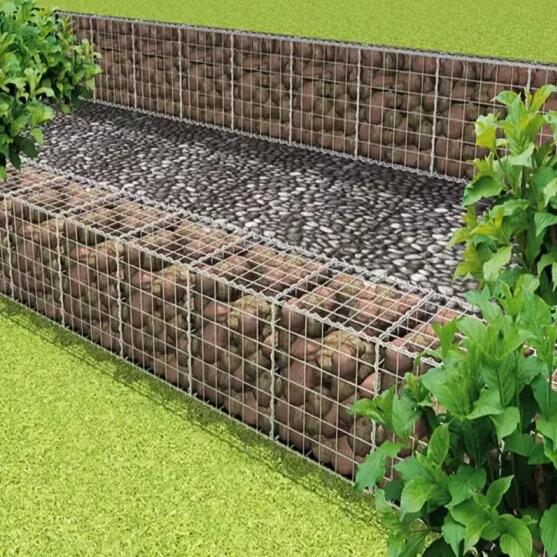Gabion mesh is a fundamental component in civil engineering, landscaping, and erosion control projects. Its versatility and durability make it a popular choice for creating gabion structures such as retaining walls, riverbank protection, and decorative garden features. This guide explores what gabion mesh is, its uses, types, benefits, and material specifications.
Gabion mesh is a network of interconnected metal wires, typically welded or woven into a rectangular or hexagonal pattern. When filled with rocks or stones, it forms a solid, stable structure known as a gabion. Gabion mesh provides strength, flexibility, and durability to gabion constructions, allowing them to withstand environmental stress and heavy loads.
Gabion mesh has a wide range of practical applications, including:
Retaining Walls – Stabilizing slopes and preventing soil erosion.
Riverbank and Shoreline Protection – Absorbing water energy to reduce flooding or erosion.
Bridge and Road Support – Reinforcing embankments and structural bases.
Landscaping – Creating decorative garden walls, seating, or planters.
Noise Reduction Barriers – Reducing sound along highways or railways.
Its adaptability makes gabion mesh suitable for both functional and aesthetic projects.

Different types of gabion mesh are available depending on project needs:
Welded Gabion Mesh – Provides a rigid, strong structure ideal for high-stress applications.
Woven Gabion Mesh – Flexible and able to conform to uneven terrain; common in riverbank protection.
PVC-Coated Mesh – Enhances corrosion resistance in wet or marine environments.
Stainless Steel Mesh – Offers long-term durability and aesthetic appeal for exposed areas.
Choosing the right type depends on environmental conditions, structural requirements, and desired appearance.
Durability – Resistant to weather, corrosion, and mechanical stress.
Flexibility – Can adjust to ground movement without cracking.
Permeability – Allows water to pass through, reducing pressure buildup.
Low Maintenance – Requires minimal upkeep over time.
Eco-Friendly – Supports vegetation growth and integrates naturally with landscapes.
These advantages make gabion mesh a sustainable and cost-effective option for construction projects.
The performance of gabion box depends on its material and dimensions:
Materials: Galvanized steel, PVC-coated steel, or stainless steel.
Mesh Size: Common sizes include 50 × 50 mm, 75 × 75 mm, and 100 × 50 mm.
Wire Diameter: Usually ranges from 2.7 mm to 5 mm depending on the application.
Coating: Hot-dip galvanized or PVC-coated for extra corrosion protection.
Selecting the proper specifications ensures the gabion structure remains durable and effective under environmental pressures.
Comments
Please Join Us to post.
0